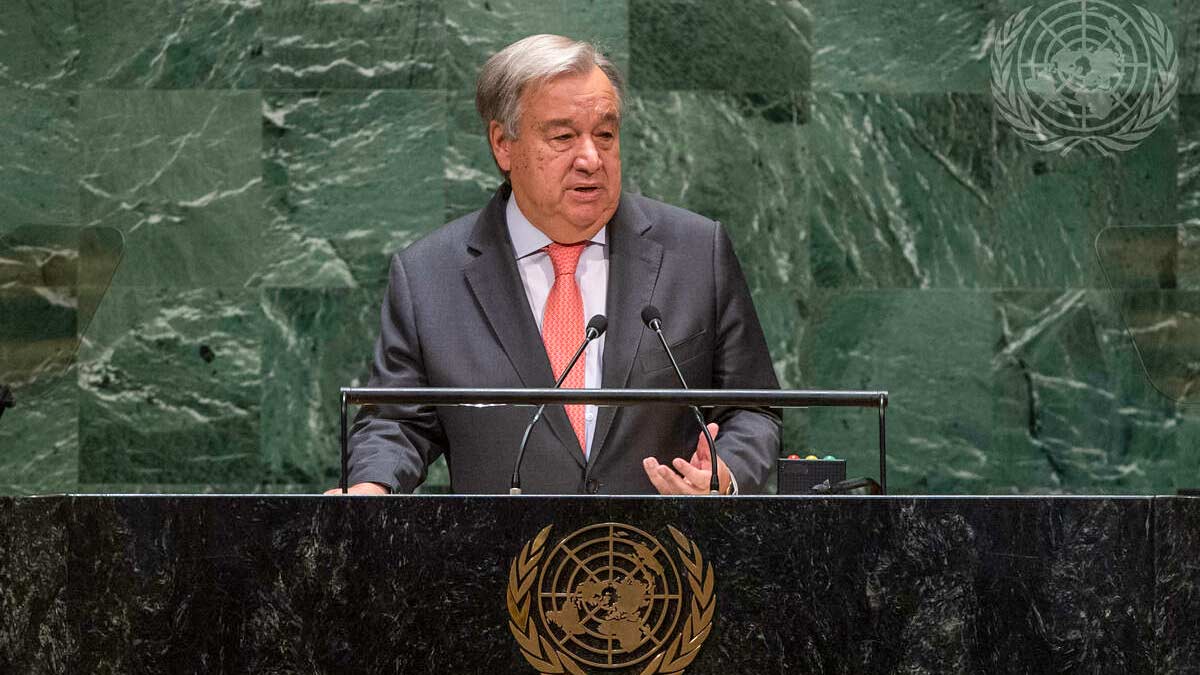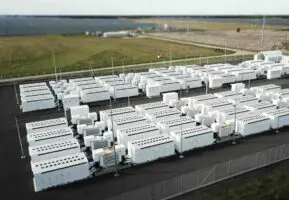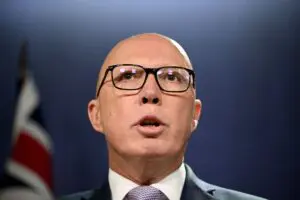Australia has been named and shamed by the United Nations secretary general António Guterres, in an extraordinary speech that called out the governments of wealthy nations for not setting stronger 2030 emissions reduction targets.
In an address to the Economist Sustainability Summit overnight, Guterres targeted his criticism at wealthy countries, including the members of the G20, saying that they were overwhelmingly responsible for global emissions, and so had an obligation to act.
And, unusually for a person in his position, Guterres singled out Australia as being among a group of countries he described as “holdouts” on announcing stronger 2030 emissions reduction targets.
“If we want to stop global warming, we need to go to the source – the G20,” Guterres said.
“The developed and emerging economies of the G20 account for 80 per cent of all global emissions.”
“A growing number of G20 developed economies have announced meaningful emissions reductions by 2030 – with a handful of holdouts, such as Australia.”
While many countries announced stronger 2030 emissions reduction targets in the lead up to the COP26 international climate talks, held in Glasgow last year, the prime minister took the same target set under the Abbott government in 2015.
Australia’s official target remains a reduction of 26 to 28 per cent from 2005 levels by 2030.
Morrison attempted to pass off hypothetical ‘projections’ of Australia’s future emissions as a new target, projections reliant on policies not yet adopted by the Morrison government and the invention of unspecified new technologies.
Australia also refused to sign a joint call to reduce global methane emissions and invited oil and gas company Santos to use Australia’s official pavilion at the COP26 talks promote itself.
Guterres said that countries needed to aim for at least a 45 per cent emissions reduction by 2030 to remain on track to keep global warming to no more than 1.5 degrees.
“The science is clear. So is the math,” Guterres told the summit.
“Keeping 1.5 alive requires a 45 per cent reduction in global emissions by 2030 and carbon neutrality by mid-century.”
“That problem was not solved in Glasgow. In fact, the problem is getting worse. ”
While the UN secretary general has not shied away from calling on countries to take much stronger action to address the growing climate crisis, the direct naming of Australia is an unusual step that points to the gravity of Australia’s poor track record on climate.
Generally, international diplomacy dictates that national representatives and UN officials stop short of naming and criticising individual countries, and it is usually only done in response to serious transgressions.
Guterres also targeted his criticism at private market investors that were supporting the expansion of the coal industry, which he labelled a “stupid investment’.
“Those in the private sector still financing coal must be held to account. Their support for coal not only could cost the world its climate goals,” Guterres said.
“It’s a stupid investment – leading to billions in stranded assets. And it’s time to end fossil fuel subsidies and stop the expansion of oil and gas exploration.”
The Morrison government is unlikely to be phased by the targeted criticism – communications minister Paul Fletcher has already described Guterres as being part of the “chattering classes” – as it has resisted international pressure to strengthen its action on climate change.
On Tuesday, federal energy minister Angus Taylor announced that the federal government would provide a further $50 million in subsidies to the gas industry, supporting the development of a further seven gas infrastructure projects.
It follows resources minister Keith Pitt welcoming surging prices for oil, gas and coal – celebrating the extra profits being received by fossil fuel companies.










